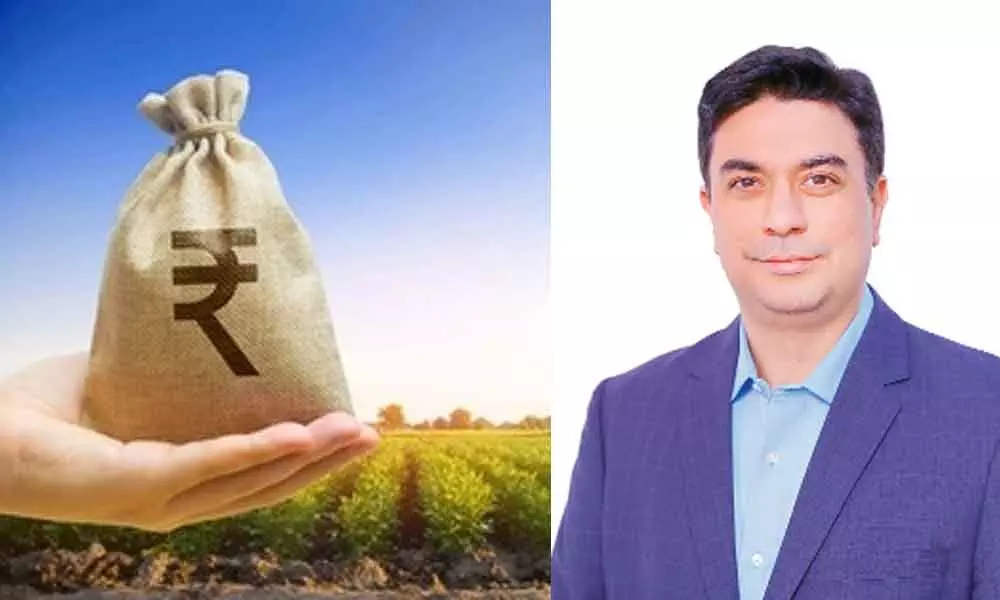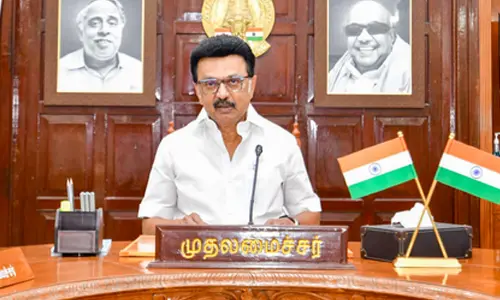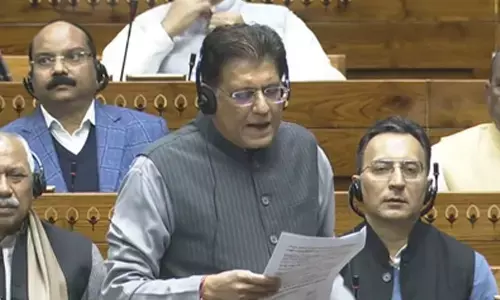It's high time to incentivise investments in agri sector

Sunoor Kaul, Co-Founder and Director of Origo Commodities
Government should aggressively push setting up warehousing in BOT or PPP mode
How has the Covid pandemic affected Origo Commodities' business?
Our business is in two parts. One is on the structured fund side and another is on the warehousing side. In the warehousing side, 80-90 per cent of our business is from the government, while the rest is for the exchanges and some private parties. During Covid times, the government business didn't get impacted at all because we were still stocking farmers' produce and also ensuring supply to ration shops. During the lockdown period, we had special passes to operate and we were functioning with full capacity for stocking and releases.
Structured finance got impacted because mandis were closed for six weeks (during the initial period of lockdown). After that, mandis slowly started and by June end, mandis were fully functional again. However, rabi season buying got impacted during April-May last year. We are trying to make that up by purchasing more now. So, structured finance will pick up. This year, we aim to buy double the volume that we bought together. So, the overall financial year should be fine. In revenue terms, we will end up higher and profitability should be similar to last year.
Which is the growth area for Origo Commodities? Is trade finance growing higher than warehousing for you?
Last fiscal, we had a revenue of Rs 295 crore of which Rs 150 crore came from warehousing and the remaining from structured debt business. Both are growing areas for the company.
What are your views on the new farm laws? Will any disruption in the current structure of the agriculture market impact Origo Commodities?
The farm laws, in terms of direction, have the right intent. Though there is a debate going on the interpretation of the law, hopefully, it will get resolved. If you see, the Essential Commodities Act has to be taken out because there are no benefits of that particular Act.
On the mandi side, farmers will have multiple options for selling their produce. The interpretation of MSP seems like a point of contention. However, with the Supreme Court intervening, that debate should be resolved.
How was the initial response to the securitised commodity transaction that you completed recently? Will it give more confidence to investors for putting money into agriculture sector?
As we know, there is a dearth of capital in the agriculture sector. The need for formal financing is very high in the sector. Banks try to fund it but all banks put together don't fund more than Rs 30,000 crore. This is only 5-6 per cent of the total requirement. While there is an appetite from the investor's side to fund this sector, there is no financial instrument.
I think, pass-through certificate is the instrument that connects the investors with the agriculture sector directly through a SEBI-regulated instrument. It is highly rated (A1), which provides liquidity to the producer at the end. So, this works well for investors, producers apart from providing much-needed liquidity to the sector.
What is the AUM as of now? What kind of growth do you expect next financial year?
As far as warehousing is concerned, we should have around Rs 9,000 crore of inventory in our warehouses. In structured finance, we should buy Rs 250 crore of inventory this year in the kharif season. We will almost double it to around Rs 600 crore next year. In terms of assets under management in the warehouses, it should be 10-15 percent higher.
How many warehouses Origo Commodities manage as of now? Will there be any addition in the current year?
We have around 400 warehouses as of now. These are all managed or leased warehouses. We are trying to see whether we can enter into a contract to build the warehouses for the government. But, none of the current warehouses are owned by the company. We should see 10-15 percent increase in the number of warehouses in the next financial year.
Are you adequately funded now? Will you raise more funds in the near future?
We are adequately funded now. We may look at raising some funds in the second half of next year.
Origo has an NBFC license to fund the agriculture sector? Is there any new segment, you plan to enter within the financing space?
As far as banking partners are concerned, we have been funded by HDFC Bank and Yes Bank. We also have other relationships with NBFCs and international institutions. We hold an NBFC license since 2016, which is looking at different instruments for funding in the agriculture sector.
We started doing supply chain financing recently. We are also looking at whether we can finance the input-side of the agriculture business under which dealers and distributors of seed and fertilizers are planned to be funded.
What are your expectations from the Budget?
Given the shortage of storage space, the Budget should provide for more funding for building warehouses. The government should aggressively push setting up warehousing in BOT (build, own, transfer) mode or PPP (public, private partnership) model. In terms of agri-financing, there should be some tax incentives.
Currently, an investor investing in the agriculture sector is being taxed at the same rate just like a normal investor. So, we have highlighted this issue with the Finance Ministry. If the government can provide tax concessions for investing in agriculture instruments, that will make these instruments more attractive.














